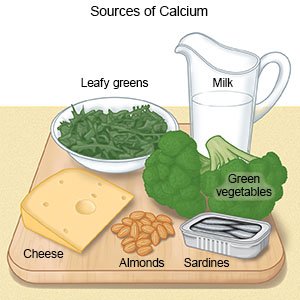Growth Hormone Deficiency in Adults
Medically reviewed by Drugs.com. Last updated on Apr 6, 2025.
Growth hormone deficiency (GHD) is a condition that prevents your pituitary from making enough growth hormone. The pituitary is a gland in your brain. Growth hormone makes children and adolescents grow taller. Throughout life, it helps increase muscle mass and strengthens bones. Growth hormone also helps the liver and pancreas work correctly and stimulates the immune system.
DISCHARGE INSTRUCTIONS:
Call your doctor if:
- You have new or worsening symptoms.
- You have questions or concerns about your condition or care.
Medicine:
- Human growth hormone (rhGH) is an injection you will give 1 time every day.
- Take your medicine as directed. Contact your healthcare provider if you think your medicine is not helping or if you have side effects. Tell your provider if you are allergic to any medicine. Keep a list of the medicines, vitamins, and herbs you take. Include the amounts, and when and why you take them. Bring the list or the pill bottles to follow-up visits. Carry your medicine list with you in case of an emergency.
Manage GHD:
- Eat healthy foods that are high in calcium and vitamin D. Calcium and vitamin D work together to keep your bones strong. Good sources of calcium are milk, cheese, broccoli, tofu, almonds, and canned salmon and sardines. Vitamin D is in fish oils, some vegetables, and fortified milk, cereal, and bread. Vitamin D is also formed in the skin when it is exposed to the sun. Ask your healthcare provider how much sunlight is safe for you.

- Exercise regularly. Ask your healthcare provider about the best exercise plan for you. Weightbearing exercise for 30 minutes a day on most days of week can help build and strengthen bone. Your healthcare provider may also recommend exercises to build muscle, such as weightlifting. Activities such as Tai chi or yoga can help improve your balance.

Follow up with your doctor or endocrinologist as directed:
You may need to go in every 1 to 2 months if you are receiving rhGH. The dose may be increased at each visit until the final dose is reached. Then you may need to go in every 6 months to check if rhGH is working or if you are having side effects. Your blood fat and sugar levels may be checked every year. You may need x-rays to check your bone density if you continue treatment for longer than 2 years. Write down your questions so you remember to ask them during your visits.
© Copyright Merative 2025 Information is for End User's use only and may not be sold, redistributed or otherwise used for commercial purposes.
The above information is an educational aid only. It is not intended as medical advice for individual conditions or treatments. Talk to your doctor, nurse or pharmacist before following any medical regimen to see if it is safe and effective for you.
Further information
Always consult your healthcare provider to ensure the information displayed on this page applies to your personal circumstances.
